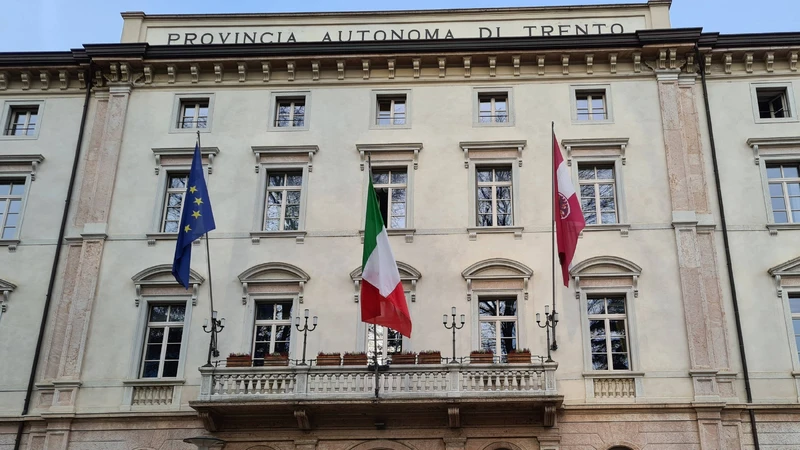Political bodies
This section is dedicated to the institutional bodies of the Autonomous Province of Trento: the President, who represents the Province, directs provincial policy and is responsible for it; the Provincial Council, the governing body of the Province formed by the President and councillors; and the Provincial Council, the body representing the population that exercises the legislative function.

President of the Province
The President has functions of guidance and direction of the councils and the entire administration, duties of representation of the authority and specific powers specified by the statute.
The elections for the President of the Autonomous Province of Trento and the Provincial Council were held on Sunday 22 October 2023. Having completed the polling operations in the 527 sections of the Trentino region, Maurizio Fugatti was the most voted presidential candidate, thus becoming President for the 17th legislature with the proclamation of those elected on 7 November.

Provincial Council
This section is dedicated to the Provincial Council, which expresses the government of the Autonomous Province of Trento. It consists of the President of the Province and no more than six councillors appointed by the President from among the provincial councillors within ten days of the proclamation of those elected. One of the councillors is assigned the function of vice-president. The President may also appoint a seventh 'technical' councillor, i.e. chosen from among the citizens not elected to the Provincial Council.
At this link you can consult the composition of the previous junta.

Provincial Council
The Provincial Council is one of the bodies of the Province, together with the President of the Province and the Provincial Council. The Provincial Council may well be considered the 'Parliament' of Trentino and performs the legislative function. It is therefore a representative body of the population and a political body, since it guides and determines the political choices of the Province. The Provincial Council is elected by universal, direct and secret suffrage and consists of thirty-five councillors.